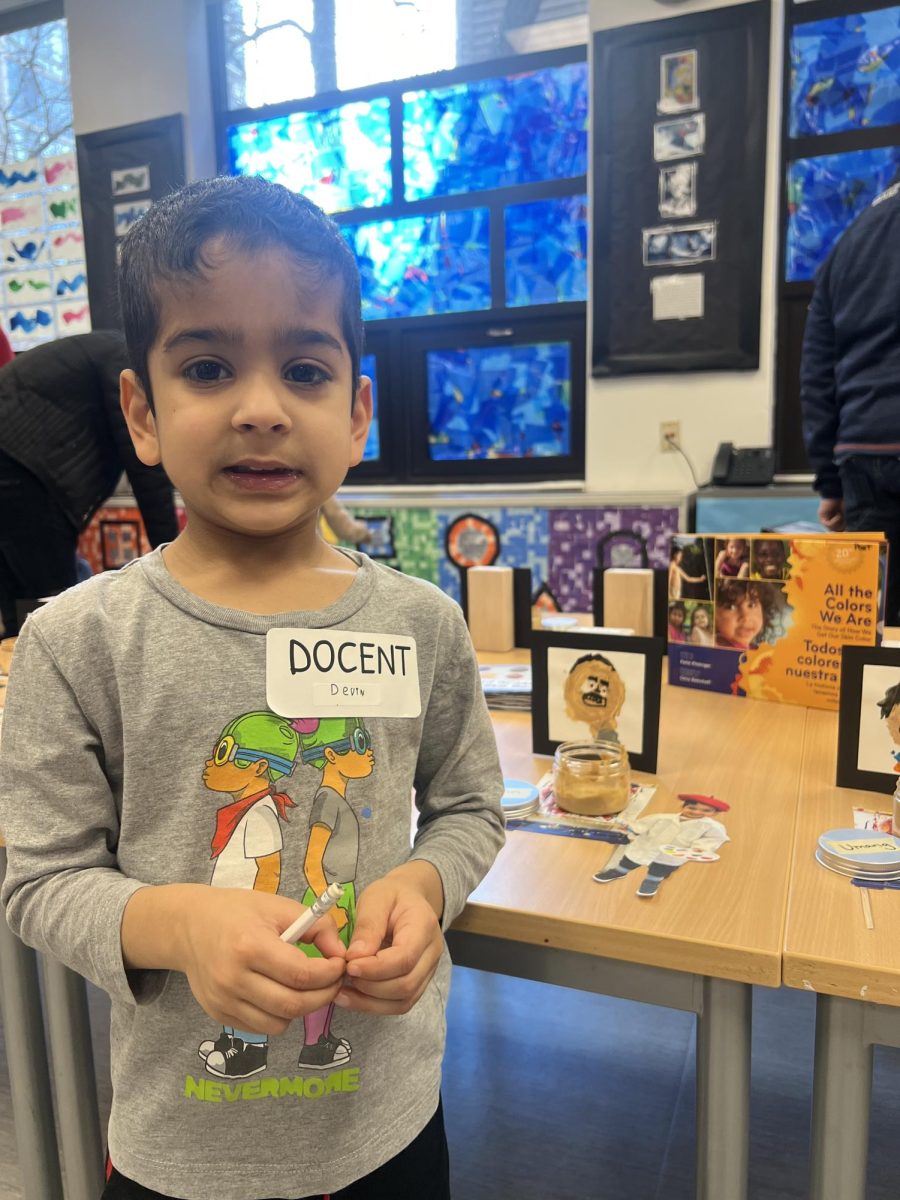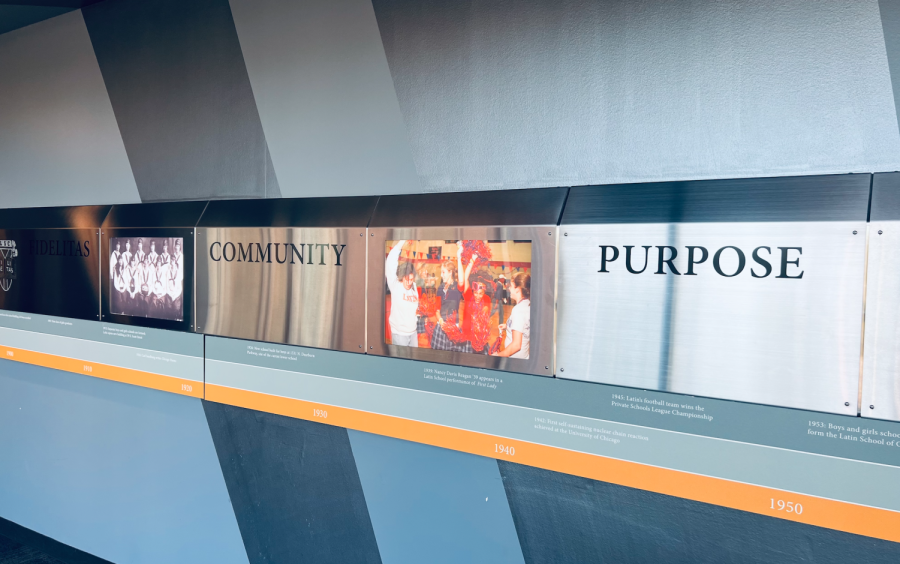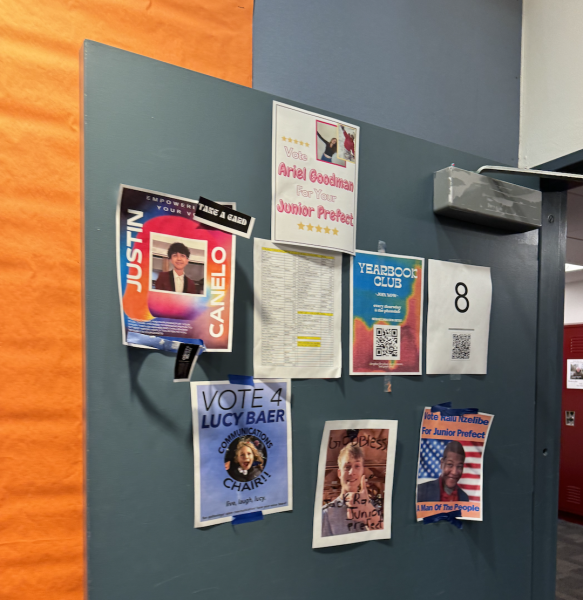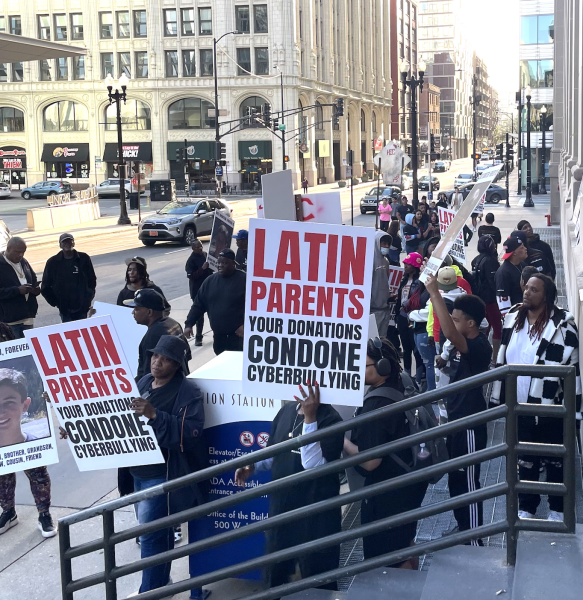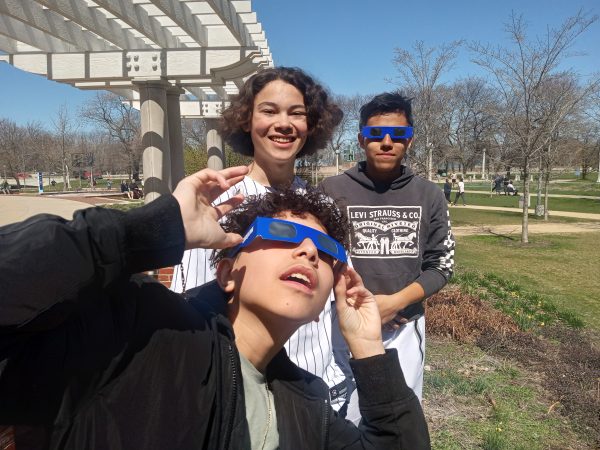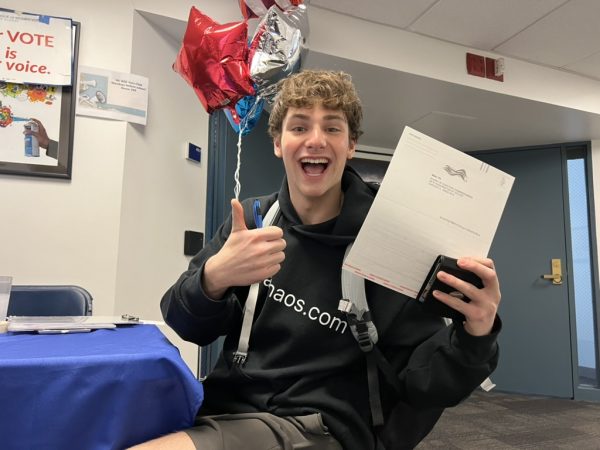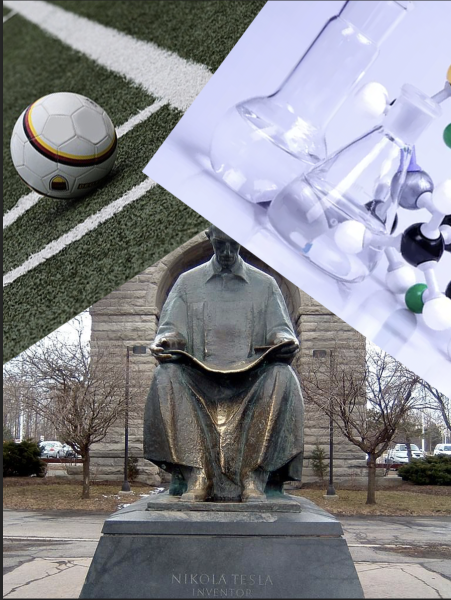In Absence of Service Requirement, Student Volunteer Work Disappears
Some students agree that Latin’s values of community and purpose were naturally embodied by students engaging in long-term, direct service.
Although Latin recently celebrated its first school-wide pep rally since 2019, and the Upper School’s socially distanced and often silent lunches seem to be long in the past, the school has yet to recover what used to be a cornerstone of its student experience: long-term, direct service projects.
When the pandemic hit, Latin excused the then underclassmen from their 30-hour cumulative service requirement, as in-person volunteering became nearly impossible. But even as COVID hospitalizations continue to plummet, allowing Chicago to return, in many ways, to its pre-pandemic state, Latin has decided to keep student service optional. Latin does, however, continue to boast of its commitment to service on its website and around campus.
In addition to the pandemic, Service Learning Coordinator Sarah Bunger’s departure in 2020 caused the program to fall further down Latin’s list of priorities, according to Director of Student Life, Timothy Cronister. Ms. Bunger was not replaced, and Mr. Cronister, who also served as interim Athletic Director at the time, stepped in to fill some of her responsibilities, including overseeing student service work.
Mr. Cronister has been optimistic about the optional approach to service learning. “Can we make it, instead of required hours, just something we do at Latin?” he asked. While an idyllic aspiration, for now it seems that the answer is largely no.
Like many of her classmates, freshman Aidyn Jones said, “I don’t think many people in our grade will do it if it’s optional.”
Freshman Emma Vallenilla agreed. “When it’s optional, less people do it.”
Junior Carmen Quiñones said the same for her class, which was also not required to complete service projects over the past three years. “I don’t think people were motivated to start long-term projects,” she said.
Under the old requirement, freshmen completed a minimum of 10 hours of direct service, while sophomores completed 20.
Latin has continued to hold days of service for individual classes, host drives, and send student-made greeting cards to organizations across the city. While important, these programs lack the interpersonal aspect of historic student volunteer work, initially motivated by Latin’s service requirement.
Senior Alena Brandt began teaching English over Zoom as a freshman. She has worked with the same Ukrainian woman for the past four years.
“This form of long-term service has impacted me greatly,” Alena said. “I made a lifelong friend and have learned so, so much from her.”
Alena has even continued to tutor through the war in Ukraine. “I gained a personal connection to something happening outside the U.S., and it made me much more aware of news outside my own community and bubble,” she said.
Alena has exceeded what would have been a 30-hour requirement, and she is grateful that the school expected her to engage in direct service her freshman year. “Although it ended up not being required, knowing Latin did have a service requirement pushed me to pursue this volunteer work,” she said, adding that her likelihood of starting this work now would be low, given Latin’s lack of emphasis on individual service projects.
Carmen worried that required service would worsen the quality of students’ work. “On the one hand,” she said, “it would be nice for more people to do service projects in general, but having it required might negatively impact the service and the students’ outlook on it for the rest of their lives, as something they are forced into.”
Upper School Director Kristine Von Ogden shared a similar concern. “Not having an hour requirement is the best philosophical approach,” she said, “because when you make something mandatory and someone isn’t invested in it, they might not be doing it for the right reasons.”
But this has not been the case for Alena. She continued her work even when she knew it was no longer mandatory, a decision she attributes to the value of service that she discovered once she started volunteering. “In general, there are so many benefits to long-term direct service, but the most valuable has to be the connections you make with others and the perspectives and lessons you can learn from them.”
Senior Jadyn Aling, who also went well beyond Latin’s old 30-hour requirement by helping a man pass his General Educational Development test, shared similar experiences to Alena’s. “I definitely think Latin’s requirement for service pushed me to partake in [volunteering] opportunities,” Jadyn said, “and without this push, I don’t think I would have found a time for it in my busy schedule.”
Like Alena, Jadyn began to see early on in her work that she was doing much more than checking a box off her list of graduation requirements. “The benefit of long-term service is seeing your direct impact,” Jadyn said. “It is extremely rewarding to identify how your time is making a difference in somebody else’s life, but also, the connections I have made are unbeatable.”
The service work Latin students are currently encouraged to engage in is often indirect, meaning there is little person-to-person contact involved. Mr. Cronister attributes this shift to COVID, still, as does Ms. Von Ogden. “The pandemic has definitely eased, but a lot of the direct service that used to be available still isn’t available,” Ms. Von Ogden said. “Until all those opportunities are really available to our students on a wide scale, it does not seem fair to reimpose an hours requirement.”
They may not be the same ones students used to gravitate toward, but there exist dozens of Chicago-based organizations looking for minors to commit to long-term volunteering now that distancing restrictions have eased, offering students many opportunities to discover how they can make tangible impacts.
Jadyn emphasized the importance of the relationships made possible through volunteering. She said, “Direct service often puts us in contact with people outside of our usual communities, inciting thought, reflection, and personal connections that you don’t get through indirect service.” Of her student, Jadyn said, “I have had an effect on him that is going to support him forever.”
Mr. Cronister agreed that there is a unique value in direct service, and that it can affect communities in ways that indirect service might not. He also recognized the decrease in student commitment to long-term projects. “We know that that has been lost,” he said, “and that is a real shame.”
Mr. Cronister also said, “My goal this year is that every high school kid does a day of service—eight hours.” These eight hours are not as strictly required as they have been in past years, and they also are not limited to direct work. Participation in drives and grade-wide projects may add toward a student’s eight hours.
Even though he is starting this year with an eight-hour goal, Mr. Cronister said, “We want direct service. We don’t want one-offs.”
However, the freshmen’s apparent lack of interest in long-term volunteering might suggest that without a requirement, students will be less likely to pursue projects like the ones Latin students used to. Alena said, “I have gained so much through my experiences, but it never would have happened if Latin had not required service.”

Eden Raviv (‘23) is eager to bring relevant stories and perspectives to the Latin community in her second year as Editor-in-Chief. Eden joined The...


































